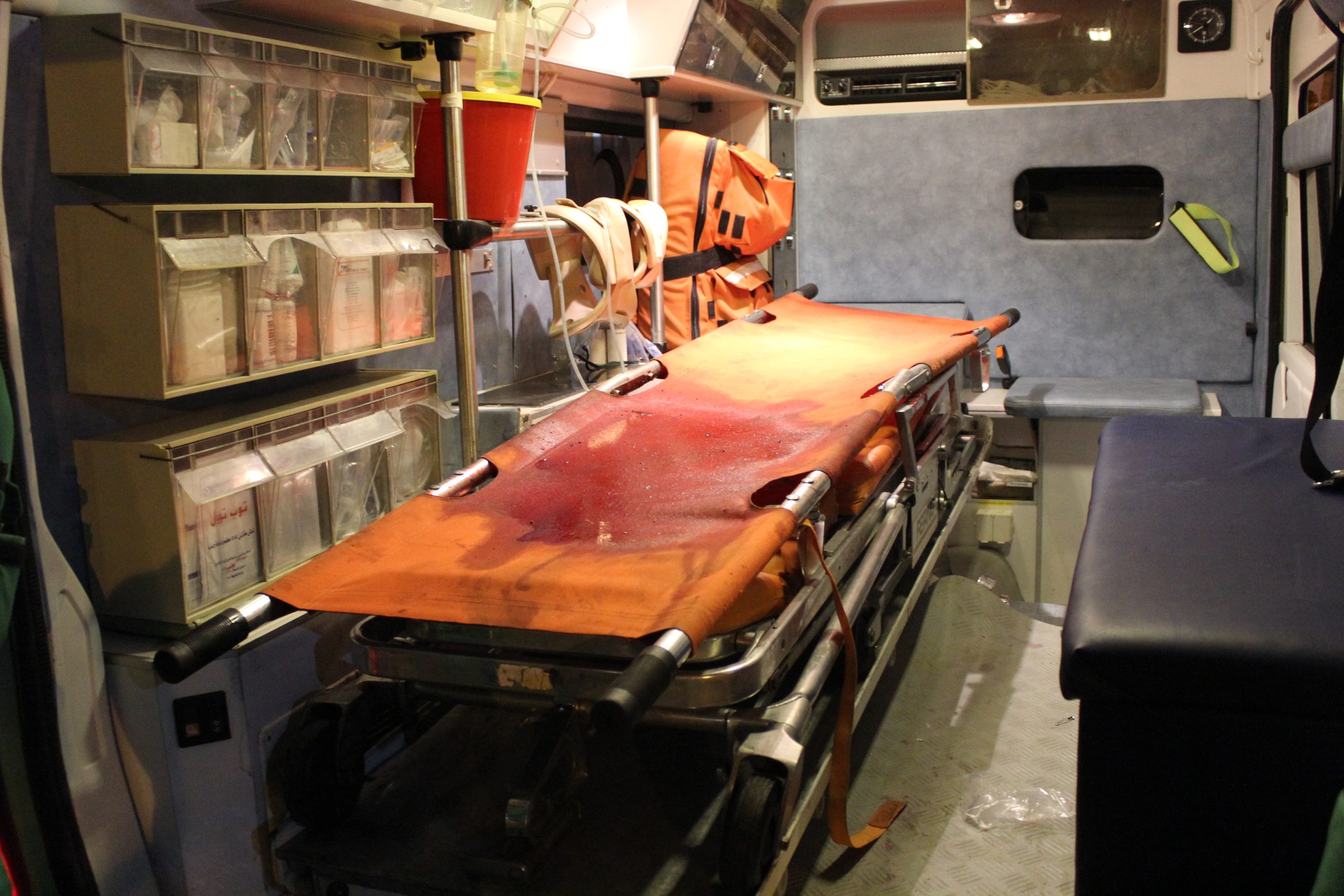
An ambulance at Shifaa Hospital, Gaza, November 2023. Gigi Ibrahim via Flickr. CC BY 2.0 DEED
Webinar – No health without peace: Health justice in armed conflict settings
28 May 2024
This webinar has taken place.
ReBUILD for Resilience and Health System Global’s Thematic Working Group on Health Systems in Fragile and Conflict-Affected Settings [opens new tab] invite you to a webinar which will explore the role of global health actors in promoting peace and securing health justice in conflict-affected settings.
Background to the webinar
Armed conflict is a leading global source of death, serious injury and disability, placing significant strain on lives, governments, economies, and healthcare systems across the world. The Eastern Mediterranean Region alone has witnessed conflicts and emergencies in Palestine, Yemen, Syria, Sudan, Libya and Lebanon in recent years.
Attacks on health systems, including on health workers, facilities, patients and transport, represent serious violations of human rights and international humanitarian law. Airstrikes and ground invasions frequently target healthcare facilities, and healthcare workers are often arrested or killed.
The burden of conflicts’ escalation is disproportionately placed on women, children and other vulnerable groups, causing casualties, restricting access to healthcare services and exacerbating existing health inequities.
Health actors, including UN organisations and other international and humanitarian actors, NGOs, medical associations, academics, in addition to governments, play an important role in shaping the health systems’ responses to conflict. They can influence how international humanitarian laws and human rights are used and applied, and play a powerful role in the peace-building process. However, politics and power relations can shape their role during times of war, contributing to further health injustice and inequities.
The aim of this webinar is to shed light on the role of global health actors in promoting peace in conflict-affected settings and in building just health systems that respond to populations’ conflict-affected health needs.
Webinar agenda
The session will begin with a presentation from LSTM’s Dr Wesam Mansour [opens new tab] – Beyond equity: Unpacking health justice in health policy and system. This will be followed by case study presentations focusing on four conflict-affected contexts:
- Yemen
Speaker: Dr Najla Al-Sonboli – head of the Paediatric Department at Al-Sabeen Hospital for Maternity and Children [open new tabs] in Sana’a, Yemen - Palestine
Speaker: Dr Israa Saleh – Medical doctor and sexual and reproductive health focal point for Médecins du Monde in Palestine [open new tabs]. - Sudan
Speaker: Dr Youssif Kome – Maternal, Newborn and Child Health Advisor for MOMENTUM Integrated Health Resilience in Sudan [opens new tab] - Myanmar
Speaker: Dr Khine Wai Wai Oo – Deputy Chief of Party, Community Partners International, Thailand [open new tabs]
Presentations will be followed by a panel discussion and question and answer session during which the presenters will be joined by:
- Dr Mohammed Alkhaldi, [opens new tab] Assistant Professor, Canadian University Dubai and Scientific Lead from TGHN-MENA network at University of Oxford.
- Professor Fouad Fouad [opens new tab], Professor in Social Science and Global Health at LSTM
- Dr Egbert Sondorp, Senior Health Advisor KIT Health [open new tabs]. Egbert will also chair the session
Together the group will consider:
- What is the role of global health as a driver of peace during armed conflicts?
- What is the role of health actors in improving the prospects for peace in conflict-affected settings and how do politics and power relations shape this role?
- How to build a just health system that responds to population needs in conflict-affected settings?
Image: An ambulance at Shifaa Hospital, Gaza, November 2023. Gigi Ibrahim via Flickr [opens new tab]. CC BY 2.0 DEED